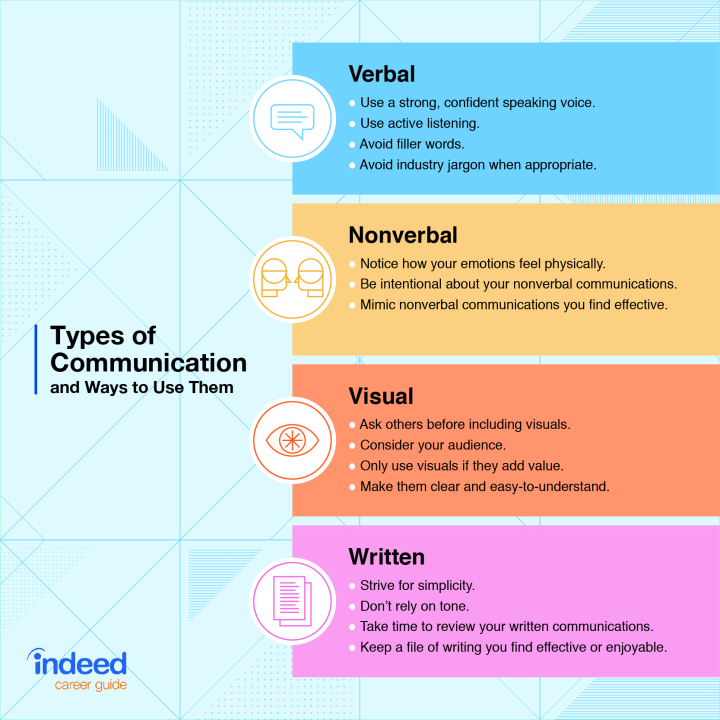Why You Need to Be a Decent Speaker?
Being a decent public speaker is essential for effective communication and building connections with others. Mastering this skill can boost your confidence, enhance your career prospects, and allow you to effectively convey your ideas and thoughts to a broader audience.
It enables you to engage, persuade, and inspire others, ultimately helping you to achieve personal and professional success. So, whether you are a student, professional, or entrepreneur, developing your public speaking abilities is crucial in today’s highly competitive world. Improve your communication skills and become a compelling public speaker to captivate your audience, create lasting impressions, and open doors to countless opportunities.

Credit: www.cnn.com
The Benefits Of Being A Decent Public Speaker
Being a decent public speaker offers numerous benefits, including improved communication skills, increased self-confidence, and enhanced career opportunities. Effective public speaking allows you to express your ideas clearly, captivate audiences, and inspire others, making it a vital skill for personal and professional growth.
****
Being a decent public speaker comes with a multitude of benefits, all of which can greatly enhance various aspects of your personal and professional life. From enhanced communication skills to increased influence, the advantages of being able to speak confidently and effectively in front of others are vast.
Let’s explore these benefits in more detail.
Enhanced Communication Skills
- Public speaking improves your ability to articulate ideas clearly and effectively, allowing you to convey complex information in a concise and understandable manner.
- It enhances your non-verbal communication skills, such as body language and facial expressions, helping you connect with your audience on a deeper level.
- By actively listening and responding to questions and feedback, public speaking encourages better communication and fosters stronger relationships with others.
Increased Influence
- Effective public speakers have the power to inspire and motivate others, making them influential leaders in various fields.
- Being able to present your ideas confidently and persuasively can sway opinions, gaining support for your cause or project.
- Public speaking helps you develop a strong personal brand, establishing yourself as an expert in your field and earning respect from your peers and colleagues.
Improved Confidence And Self-Esteem
- Overcoming the fear of public speaking and improving your skills can significantly boost your confidence, both in professional and social settings.
- As you successfully address larger audiences and receive positive feedback, your self-esteem grows, enabling you to tackle challenges with greater self-assurance.
- Public speaking provides a platform to showcase your knowledge and expertise, reinforcing a positive and strong self-image.
Being a decent public speaker brings numerous benefits, including enhanced communication skills, increased influence, and improved confidence and self-esteem. Whether you’re presenting in front of a small group or speaking to a large audience, honing your public speaking abilities can have a transformative impact on both your personal and professional life.
So, dive into the world of public speaking, and reap the rewards it has to offer.
Developing Effective Public Speaking Skills
Developing effective public speaking skills is crucial because it allows you to confidently communicate your ideas, inspire others, and advance your career. Whether you’re presenting in a boardroom or speaking at a conference, being a decent public speaker is essential for success.
Public speaking is a valuable skill that can benefit you in various aspects of life. Whether you are presenting in front of a large audience, pitching an idea to your team, or even engaging in a casual conversation, effective public speaking skills can make a significant difference in how you communicate your message.
Developing these skills allows you to captivate your audience, express your thoughts clearly, and leave a lasting impression. In this section, we will explore the key elements of developing effective public speaking skills, including understanding audience analysis, enhancing verbal communication, and mastering nonverbal communication.
Understanding Audience Analysis:
- Conduct thorough research and gather information about your audience.
- Identify their demographics, interests, and knowledge level on the topic.
- Tailor your speech or presentation to resonate with their needs, preferences, and expectations.
- Adapt your content and language style to ensure maximum engagement and understanding.
Enhancing Verbal Communication:
- Utilize a clear and concise language to convey your ideas effectively.
- Organize your content in a logical manner, using appropriate transitions between ideas.
- Use examples, anecdotes, and relevant stories to make your speech more relatable and memorable.
- Practice active listening and respond appropriately to questions or feedback.
Mastering Nonverbal Communication:
- Pay attention to your body language, maintaining good posture and confident gestures.
- Maintain eye contact with your audience to establish a connection and convey credibility.
- Utilize appropriate facial expressions to express emotions and engage with your audience.
- Utilize visual aids, such as slides or props, to enhance your message and make it visually appealing.
By understanding audience analysis, enhancing verbal communication, and mastering nonverbal communication, you can elevate your public speaking skills to a whole new level. Whether you aim to persuade, inspire, or educate, honing these skills will enable you to deliver your message effectively and leave a lasting impact on your audience.
So, let’s dive into each aspect and uncover the strategies that will help you become a confident and persuasive public speaker.
Overcoming Common Public Speaking Challenges
Become a proficient public speaker by conquering common challenges. Enhance your communication skills and captivate any audience with confidence and ease. Stand out and make a lasting impact.
Public speaking can be a daunting task for many individuals. The thought of standing in front of an audience, being the center of attention, and delivering a coherent and engaging presentation can cause anxiety and nervousness. However, with proper preparation and addressing common challenges head-on, you can become a confident and effective public speaker.
In this section, we will discuss three common challenges faced by public speakers and provide strategies to overcome them.
Managing Anxiety And Nervousness
Most people experience some level of anxiety or nervousness when speaking in public. The good news is that there are techniques you can employ to manage these feelings and deliver a successful presentation. Consider the following strategies:
- Deep breathing exercises: Practice deep breathing before and during your speech to calm your nerves and regulate your breathing.
- Visualization: Visualize yourself speaking confidently and effectively in front of the audience. This positive imagery can help alleviate anxiety.
- Practice and preparation: The more prepared you are, the more confident you will feel. Rehearse your speech multiple times and become familiar with the content.
- Start with a familiar topic: Begin with a topic you are knowledgeable and comfortable with. This will help build your confidence and ease into public speaking gradually.
Handling Questions And Interjections
Fielding questions from the audience during a presentation can be intimidating. However, handling questions effectively is an essential skill for a public speaker. Consider the following strategies:
- Active listening: Pay attention to the question being asked and ensure you fully understand it before responding. Repeat the question to clarify if necessary.
- Pause and reflect: Take a moment to gather your thoughts before responding to a question. It is okay to pause and think before answering.
- Be concise and to the point: Respond to questions with clear and concise answers. Avoid going off on tangents or providing unrelated information.
- Express gratitude: Thank the person for their question, even if it challenges your presentation. Acknowledge their input and provide a thoughtful response.
Dealing With Technical Difficulties
Technical difficulties can occur unexpectedly during a presentation, and knowing how to handle them calmly is crucial. Here are some strategies to navigate technical glitches smoothly:
- Prepare backup plans: Have a backup plan in case your presentation slides or audiovisual equipment fail. Bring printouts, handouts, or alternative ways to present your content.
- Stay calm: Remain composed and composed in the face of technical difficulties. Panicking or getting frustrated will only exacerbate the situation.
- Engage with the audience: If technical difficulties arise, take the opportunity to engage with the audience through questions, anecdotes, or interactive discussions while the issues are being resolved.
- Seek technical support: Reach out to onsite technical personnel or event organizers to assist in resolving the technical difficulties. Do not hesitate to ask for help when needed.
By proactively addressing these common public speaking challenges and implementing the strategies discussed, you can enhance your public speaking skills and confidently deliver powerful presentations. Remember, practice and preparation are key to overcoming these obstacles and becoming a decent public speaker.
So take a deep breath, embrace the challenge, and speak with conviction.
Strategies For Engaging And Impactful Presentations
Discover effective strategies for delivering engaging and impactful presentations that will help you become a skilled public speaker. Learn how to captivate your audience and deliver your message with confidence, ensuring maximum impact and a lasting impression. Gain the skills necessary to excel in public speaking and seize every opportunity to make a powerful connection with your listeners.
Storytelling Techniques For Captivating Audiences
- Incorporate personal anecdotes: Engage your audience by sharing relevant stories from your own experiences that they can relate to and find meaningful.
- Use vivid imagery: Paint a picture with your words to help your audience visualize your ideas and connect with them on a deeper level.
- Build suspense: Create anticipation by revealing information slowly, keeping your audience on the edge of their seat and eager to hear more.
- Emphasize emotional connections: Appeal to your audience’s emotions by sharing stories that evoke empathy, laughter, or even tears.
- Include elements of conflict: Introduce a problem and showcase how it was resolved, highlighting the valuable lessons learned along the way.
Visual Aids And Presentation Tools
- Utilize eye-catching slides: Create visually appealing slides with captivating images, infographics, and minimal text to enhance your presentation.
- Make use of multimedia: Incorporate videos, audio clips, or animations to add a dynamic element and keep your audience engaged.
- Use charts and graphs: Present data in an easy-to-understand format by using charts and graphs to visually represent key points.
- Whiteboard or flip chart: Get interactive by using a whiteboard or flip chart to illustrate concepts and encourage audience participation.
- Virtual reality or augmented reality: Utilize emerging technologies to create immersive experiences that grab your audience’s attention.
Incorporating Humor And Emotion
- Start with a joke or humorous anecdote: Break the ice and instantly connect with your audience by sharing a lighthearted moment or funny story.
- Use appropriate humor throughout: Sprinkle humor in your presentation to keep your audience engaged and entertained, but make sure it aligns with your topic and audience.
- Share personal stories: Open up and show vulnerability by sharing personal stories that evoke emotion, making your audience feel connected and invested in your message.
- Utilize visual and verbal cues: Use facial expressions, body language, and vocal variations to convey emotion and make your presentation more captivating.
- Involve the audience: Encourage audience participation with interactive activities or by asking thought-provoking questions that elicit emotional responses.
The Connection Between Public Speaking And Professional Success
Being a proficient public speaker is essential for professional success as it allows you to effectively present ideas, showcase leadership skills, and connect with others. A decent public speaker can engage and persuade an audience, ultimately boosting their career prospects.
Public speaking is an essential skill that can significantly contribute to your professional success. Whether you’re applying for a job, leading a team, or building a network, being able to communicate effectively in public settings can make a world of difference.
In this section, we will explore the connection between public speaking and three crucial areas of professional success: job interviews and presentations, leadership and management skills, and networking and personal branding.
Job Interviews And Presentations
- Job interviews and presentations often require you to demonstrate your ability to articulate your thoughts and ideas clearly. Here’s how public speaking can help in these situations:
- Confidence booster: Effective public speaking allows you to project confidence and self-assurance, making a positive impression on your interviewers or audience.
- Clear communication: Being a decent public speaker ensures that you can express your qualifications, experiences, and ideas eloquently, increasing your chances of landing a job or making your point effectively during a presentation.
- Persuasive skills: Public speaking enables you to engage and persuade others through compelling arguments and presentations, giving you an advantage in influencing key decisions in a job interview or impressing your audience in a presentation.
- Professional presence: Being a proficient public speaker showcases your professionalism and enhances your overall image, positioning you as a credible and authoritative figure in the eyes of employers or clients.
Leadership And Management Skills
- Leadership and management skills go hand in hand with public speaking. Here’s why:
- Influence and inspiration: Good public speakers have the power to inspire and motivate others, a crucial skill for leaders who aim to rally their teams towards a shared vision or goal.
- Effective communication: Public speaking allows leaders and managers to communicate their ideas, expectations, and directions clearly, fostering better understanding and alignment within the team.
- Conflict resolution: Being an adept public speaker equips leaders with the ability to address conflicts and mediate discussions, helping them build strong and cohesive teams.
- Presenting to stakeholders: Leaders often need to present their strategies, plans, and progress to stakeholders. Public speaking skills enable them to present information convincingly and make a strong case for their decisions.
Networking And Personal Branding
- Networking and personal branding are vital for professional growth. Here’s how public speaking can enhance these areas:
- Networking opportunities: Public speaking opens doors for networking, allowing you to connect with like-minded professionals, industry leaders, and potential mentors.
- Personal brand establishment: By speaking confidently and expertly on certain subjects, you can establish yourself as an authority in your field, enhancing your personal brand and reputation.
- Thought leadership: Public speaking engagements provide a platform to share your insights and perspectives, positioning you as a thought leader in your industry and attracting valuable opportunities.
- Building trust and credibility: Being a skilled public speaker helps you establish trust and credibility, making it easier to forge beneficial relationships with others, whether it be clients, colleagues, or potential employers.
Public speaking skills are not only beneficial for specific occasions but can also have a profound impact on your professional success as a whole. By investing time and effort into improving your public speaking abilities, you can enhance your chances of excelling in job interviews, accelerating your career progression, and building a strong professional network.
Resources For Improving Public Speaking Skills
Enhance your public speaking skills with valuable resources that are tailored to help you become a proficient speaker. Unlock your potential and gain confidence through practical tips, techniques, and exercises specifically designed for improving your public speaking abilities.
Why You Need To Be A Decent Public Speaker
Imagine confidently stepping onto a stage, capturing the attention of an audience, and delivering a powerful, memorable speech. Being a decent public speaker offers numerous benefits, both in personal and professional settings. Whether you want to enhance your communication skills, advance your career, or simply become more comfortable expressing your ideas in public, improving your public speaking skills is essential.
Fortunately, there are various resources available to help you along your journey. In this section, we will explore some of the top resources for improving public speaking skills.
Toastmasters International:
Toastmasters International is a renowned organization dedicated to helping individuals enhance their public speaking abilities and develop strong leadership skills. With thousands of clubs worldwide, Toastmasters provides a supportive environment for individuals at all experience levels. Here’s what Toastmasters offers:
- Regular club meetings where members have opportunities to deliver prepared speeches and receive constructive feedback.
- Structured learning paths tailored to different goals, such as communication skills, leadership development, and speech contests.
- Mentoring programs to support and guide individuals through their public speaking journey.
- Networking opportunities to connect with like-minded individuals and expand your professional network.
Online Courses And Training Programs:
In today’s digital age, online courses and training programs offer a convenient and flexible way to improve your public speaking skills. Here are some benefits of opting for online resources:
- Flexibility: Access the courses at your own pace and convenience, fitting them into your busy schedule.
- Variety of Options: Choose from a wide range of courses, catering to different skill levels and specific areas of public speaking.
- Expert Guidance: Learn from experienced public speaking coaches and professionals who share their knowledge and insights.
- Interactive Learning: Engage in activities, practice sessions, and interactive materials to sharpen your abilities.
Books And Podcasts On Public Speaking:
Books and podcasts provide valuable insights and practical tips from renowned public speaking experts. Here’s what they offer:
- In-Depth Knowledge: Dive deeper into the art of public speaking, learning about techniques, strategies, and the psychology behind effective communication.
- Real-Life Examples: Gain inspiration from the experiences of successful speakers and their personal journeys.
- Practical Tips: Discover actionable advice and exercises to improve your delivery, body language, storytelling skills, and more.
- On-The-Go Learning: Benefit from the convenience of listening to podcasts or reading books whenever and wherever it suits you.
By utilizing these resources, you can enhance your public speaking skills and unlock a world of opportunities. Whether you choose to join Toastmasters, enroll in an online course, or dive into compelling books and podcasts, the journey to becoming a confident public speaker starts with taking that first step.
Embrace the challenge and watch as your communication skills soar to new heights.
Frequently Asked Questions Of Why You Need To Be A Decent Public Speaker
Why Is Public Speaking Important In Today’S World?
Public speaking is a crucial skill in almost every profession. It helps you express ideas clearly, influence others, and build confidence. Whether you’re presenting a proposal to clients or leading a team meeting, being a good public speaker can propel your career to new heights.
How Can Public Speaking Benefit My Personal Life?
Improving your public speaking skills can have a positive impact on your personal life. It can boost your self-confidence, enhance your communication abilities, and help you build stronger relationships. Whether you’re expressing your opinions in a social setting or giving a toast at a wedding, being a decent public speaker can make a memorable impression.
What Are The Advantages Of Being A Decent Public Speaker At Work?
Being a decent public speaker at work can open doors to new opportunities. It can help you effectively communicate your ideas, persuade others, and leave a lasting impression. Whether you’re presenting to your superiors, leading a team, or pitching to clients, being a skilled public speaker can give you a competitive edge.
Conclusion
In a world driven by communication, the ability to be a decent public speaker is not just a desirable skill but a necessity. Whether you’re speaking in front of a large crowd or presenting to a small group, being able to effectively convey your message can make a significant impact on your personal and professional success.
A good public speaker captivates their audience, builds trust, and persuades with clarity and confidence. With improved communication skills, you can enhance your leadership abilities, inspire others, and establish yourself as an authority in your field. Public speaking also enables you to showcase your expertise, connect with people on a deeper level, and open doors to new opportunities.
So, whether you’re pursuing a career in sales, management, or any other field, developing your public speaking abilities should be a top priority. Remember, practice makes perfect, and with commitment and persistence, you can become a powerful and influential public speaker.
Start honing your skills today and watch as your professional journey takes flight.



